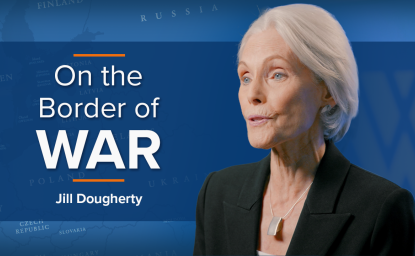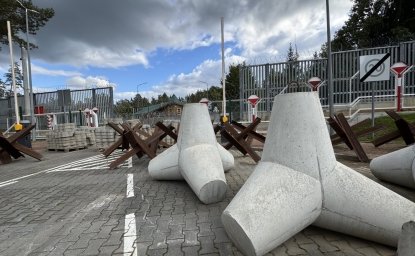A Turning Point in Iraq?
The dramatic capture of Saddam Hussein provided welcome good news from Iraq. But former Congressman Lee Hamilton points out that our work is far from done.
The dramatic capture of Saddam Hussein provided welcome good news from Iraq. But former Congressman Lee Hamilton points out that our work is far from done.
The capture of Saddam Hussein is the most important military accomplishment in Iraq since the fall of Baghdad, but it does not complete our victory. We now have to make this dramatic event a turning point in the reconstruction of a stable and democratic Iraq.
Few will soon forget the image of a once all-powerful dictator humbled in custody. For decades, Saddam Hussein has meant many things to many people – an evil tyrant, a defiant hero, a global threat, a bulwark against religious extremism, a murderer of his own people, an opulent narcissist. He may not have been as much a threat as once believed, but he was certainly ruthless and evil. The full truth of his regime must come out in a fair trial within Iraq, which balances the interests of serving justice for the victims, meeting acceptable legal standards, and moving toward a new chapter in Iraqi history.
It is hard for Americans to understand the psychological grip that Saddam Hussein had on his people. Iraqis are now free from the lingering fear that he could return to power and punish them, and may be emboldened to come forward. We should use this breakthrough to reach out to the Iraqi people anew, so that joy over the capture is translated into help in securing and reconstructing their country.
We should not anticipate a cessation of violence. The insurgency in Iraq has a momentum of its own, and we face a diverse and multi-faceted enemy – Baathist remnants, disgruntled Iraqis, criminals, and foreign fighters. Saddam Hussein may have been involved in plotting and financing part of the insurgency, but it is unlikely that he controlled all of its disparate elements from his hideouts. Guerillas have their own motivations for fighting, and will not simply lay down their arms.
The next few weeks will be crucial in stemming the violence. Aggressive tactics may be paying off in some areas, but we must ensure that military operations do not alienate Iraqis through heavy civilian casualties or widespread destruction. Saddam Hussein’s capture and interrogation could uncover more information about who, precisely, is the enemy. We need good intelligence to target force upon the right people. And we need to recruit and train qualified Iraqis to take on the work of policing their own towns and cities.
The key to the future is as much political as it is military. Iraq needs a provisional government with sovereignty, authority and international legitimacy in order to develop its own security forces. Iraq also needs to move towards Constitution-drafting and free elections. If the U.S. hands over power too soon, there could be chaos and civil war; if the U.S. waits too long, we could instigate a protracted insurgency.
President Bush has proposed a transfer of sovereignty in June 2004 to a provisional government selected by delegates chosen in town meetings throughout Iraq. But prominent Shiite clerics, emboldened by the Shiite majority, are calling for a more direct democratic approach. The U.S. needs to identify a compromise on this process that takes into account alternate Shiite, Sunni and Kurdish interests, as well as the role of Islam, before elections are held or a Constitution is written. This requires consensus and confidence building. Setting up a legitimate government that fairly represents Iraq’s ethnic, religious and political make-up will take time and mediation.
In addition to Iraqis, the U.S. should reach out to other countries. We need more donors to help reconstruct Iraq’s devastated infrastructure and oil industry, and we need countries like France, Russia and Germany to forgive some of the crushing debt accumulated under Saddam Hussein. With his capture, we can make the case anew that we all have a stake in Iraq, and are a step closer to success. Ordinary Iraqis need development aid and debt-forgiveness to improve their lives and get their economy moving; the U.S. needs help from other countries to reduce the burdens on American troops and taxpayers.
Our work in Iraq is far from done, and success is far from guaranteed. Victory cannot be declared unless we leave behind an Iraq that is better than Saddam Hussein left it – a stable Iraq, rooted in democratic principles, that threatens neither its own people or its neighbors. Capturing Saddam Hussein brings closure to a terrible era in Iraq and the Middle East. But we now need to move towards a better and more peaceful era – one in which success is measured by the friends we make, not just the enemies we kill or capture.


